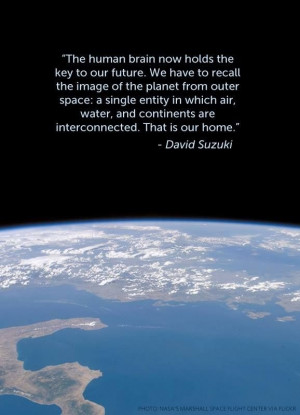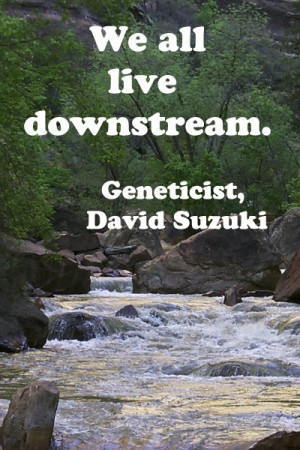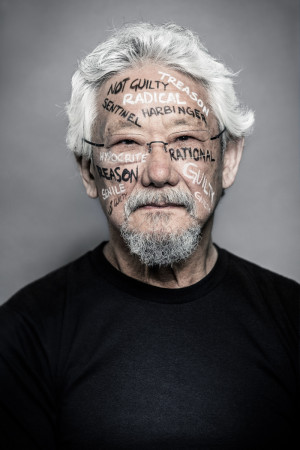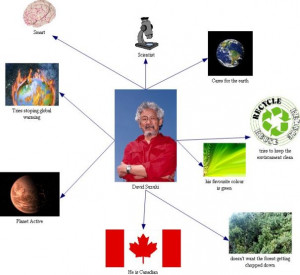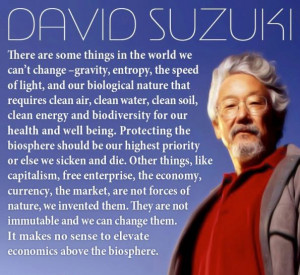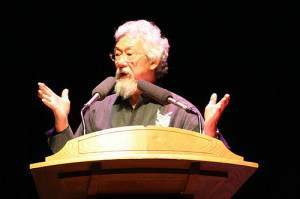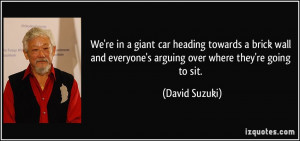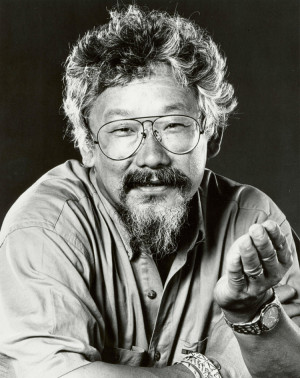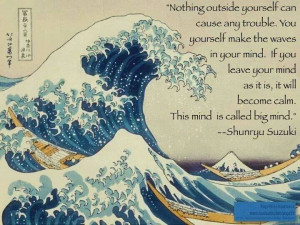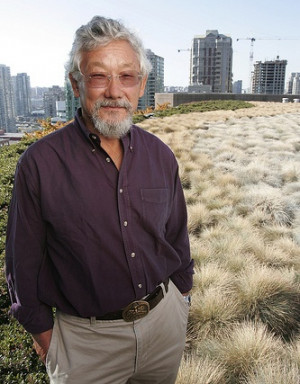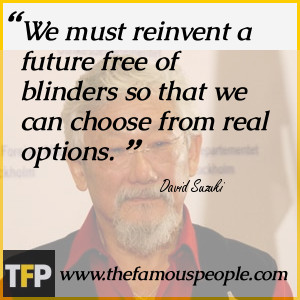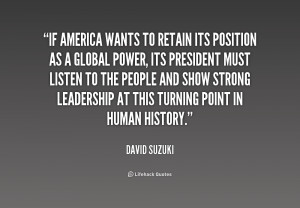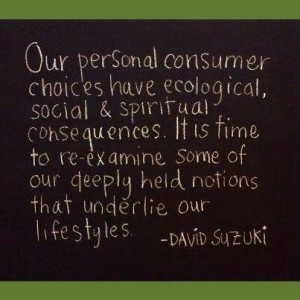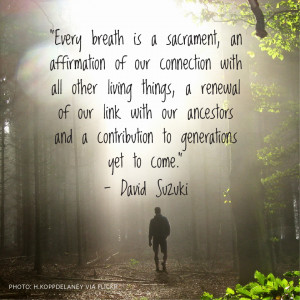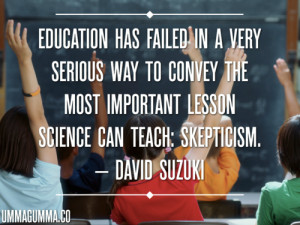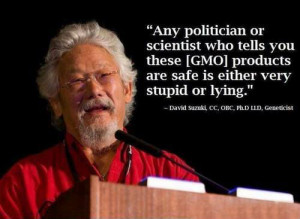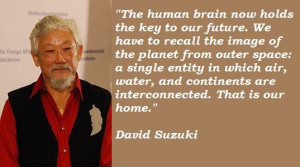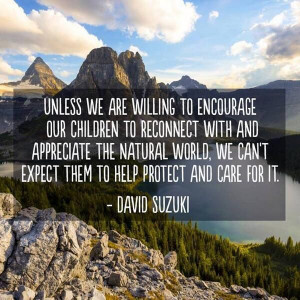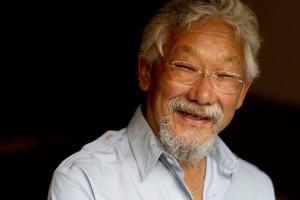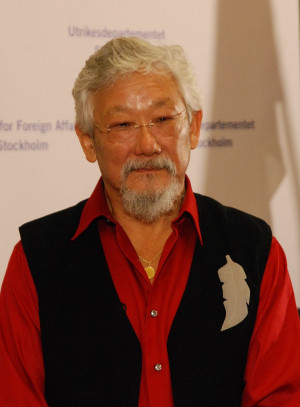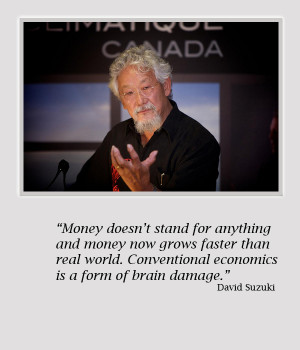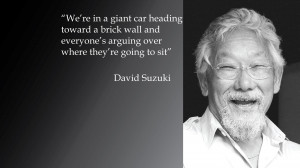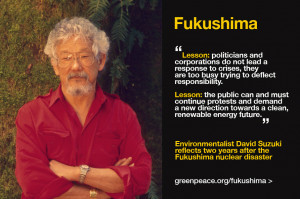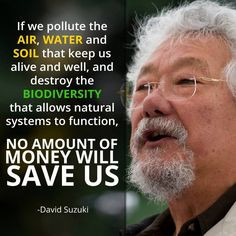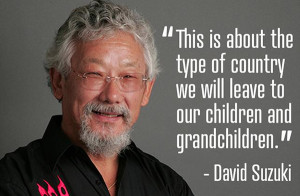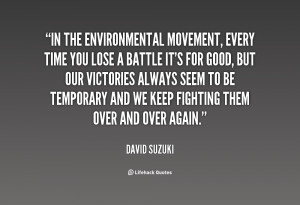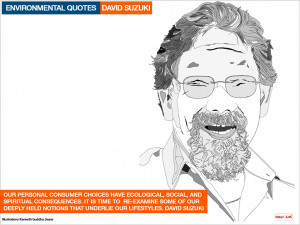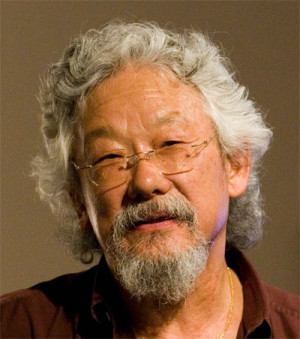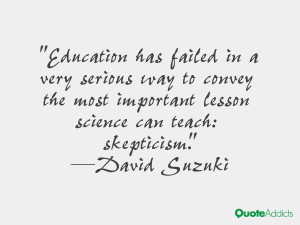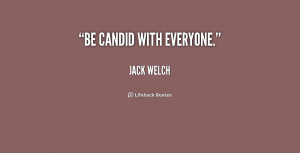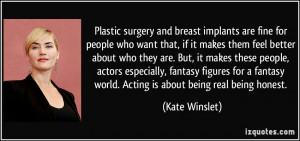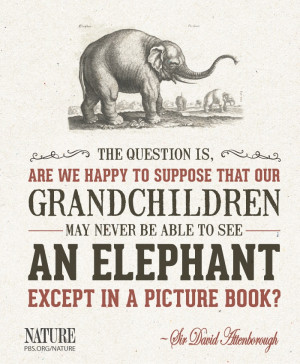David Suzuki — Canadian Scientist born on March 24, 1936,
David Takayoshi Suzuki, CC OBC is a Canadian academic, science broadcaster and environmental activist. Suzuki earned a Ph.D. in zoology from the University of Chicago in 1961, and was a professor in the genetics department at the University of British Columbia from 1963 until his retirement in 2001. Since the mid-1970s, Suzuki has been known for his TV and radio series, documentaries and books about nature and the environment. He is best known as host of the popular and long-running CBC Television science program The Nature of Things, seen in over forty nations. He is also well known for criticizing governments for their lack of action to protect the environment... (wikipedia)
If we want to address global warming, along with the other environmental problems associated with our continued rush to burn our precious fossil fuels as quickly as possible, we must learn to use our resources more wisely, kick our addiction, and quickly start turning to sources of energy that have fewer negative impacts.

